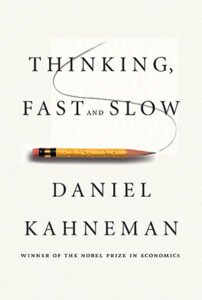|
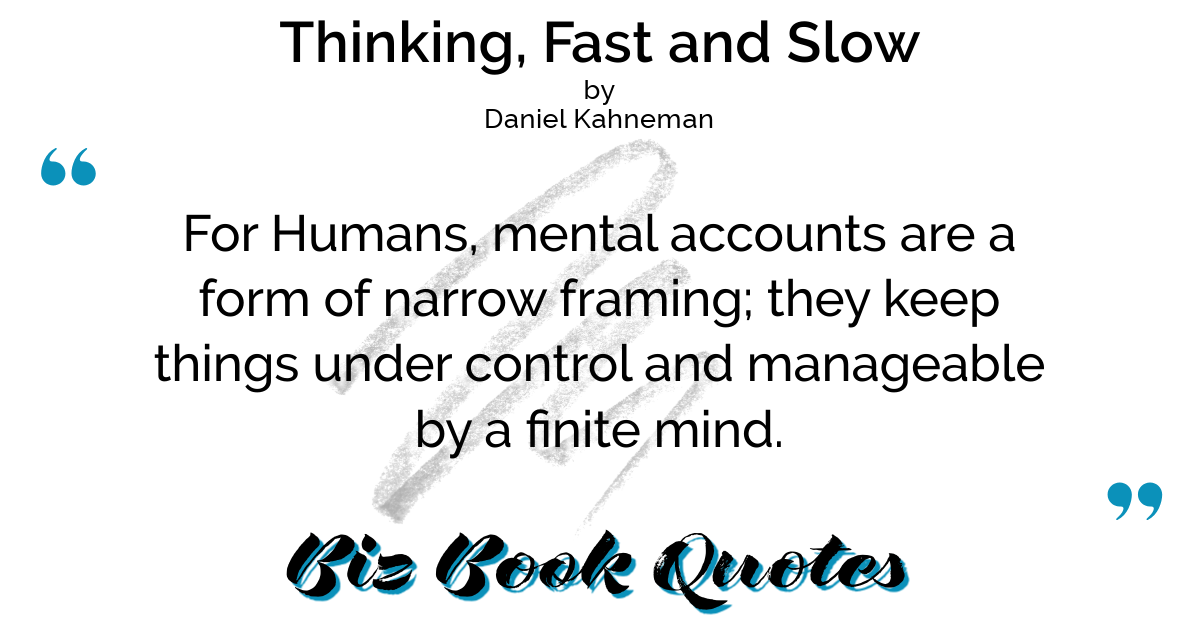
|
Thinking, Fast and Slow:
For Humans, mental accounts are a form of narrow framing; they keep things under control and manageable by a finite mind.
|
343 |
|
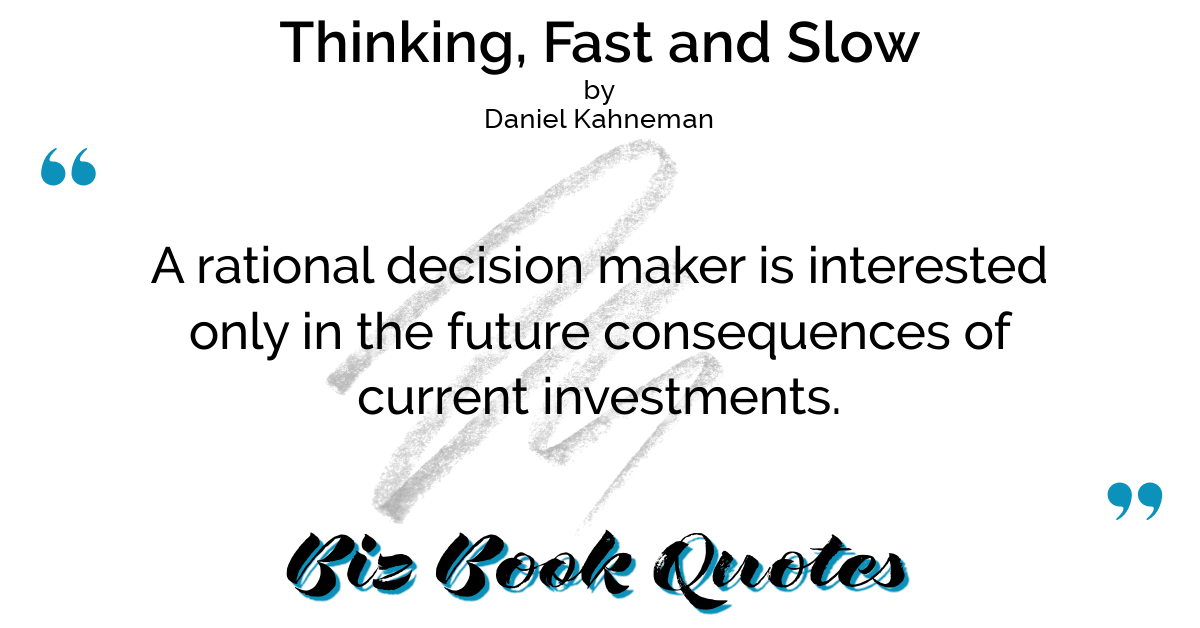
|
Thinking, Fast and Slow:
A rational decision maker is interested only in the future consequences of current investments.
|
345 |
|
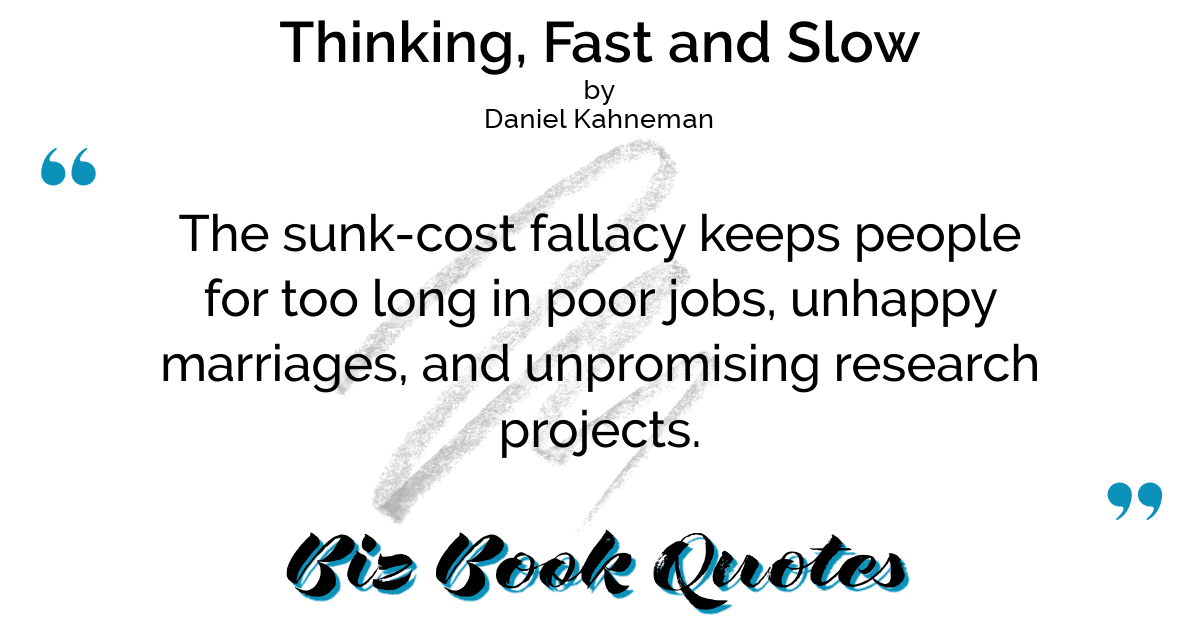
|
Thinking, Fast and Slow:
The sunk-cost fallacy keeps people for too long in poor jobs, unhappy marriages, and unpromising research projects.
|
346 |
|
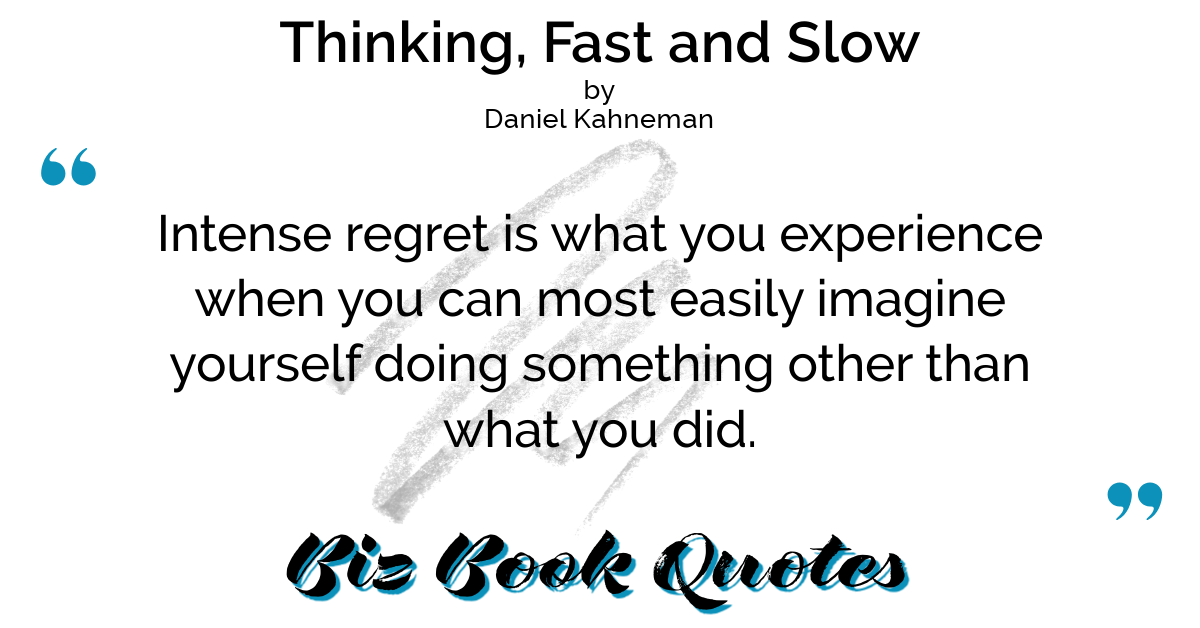
|
Thinking, Fast and Slow:
Intense regret is what you experience when you can most easily imagine yourself doing something other than what you did.
|
346 |
|
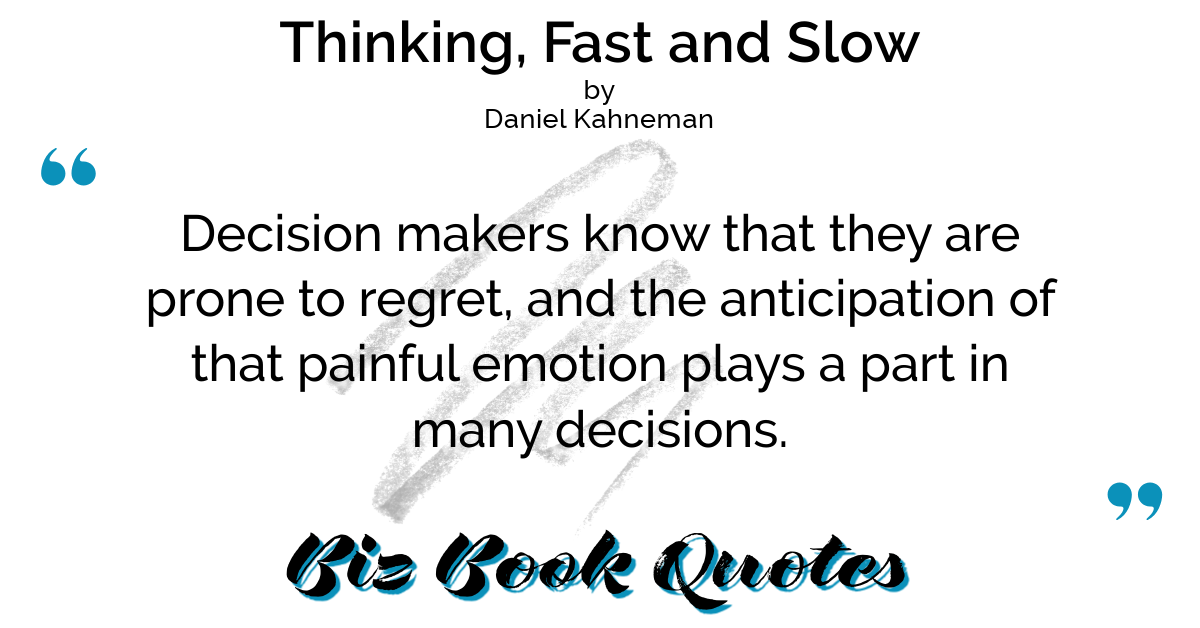
|
Thinking, Fast and Slow:
Decision makers know that they are prone to regret, and the anticipation of that painful emotion plays a part in many decisions.
|
347 |
|
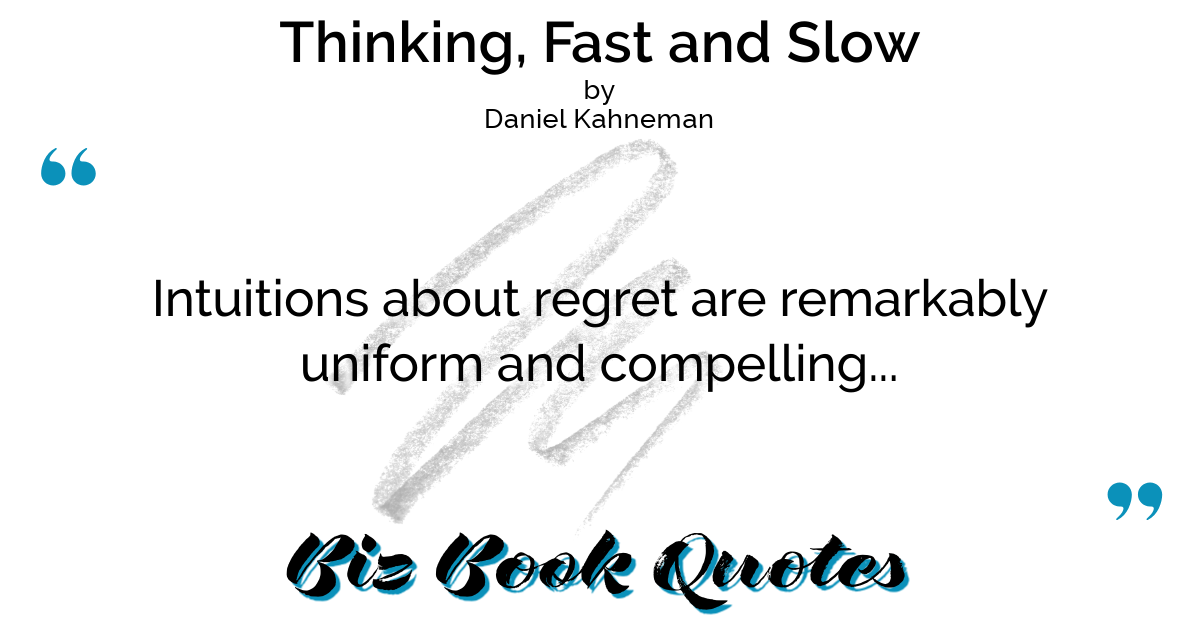
|
Thinking, Fast and Slow:
Intuitions about regret are remarkably uniform and compelling…
|
347 |
|
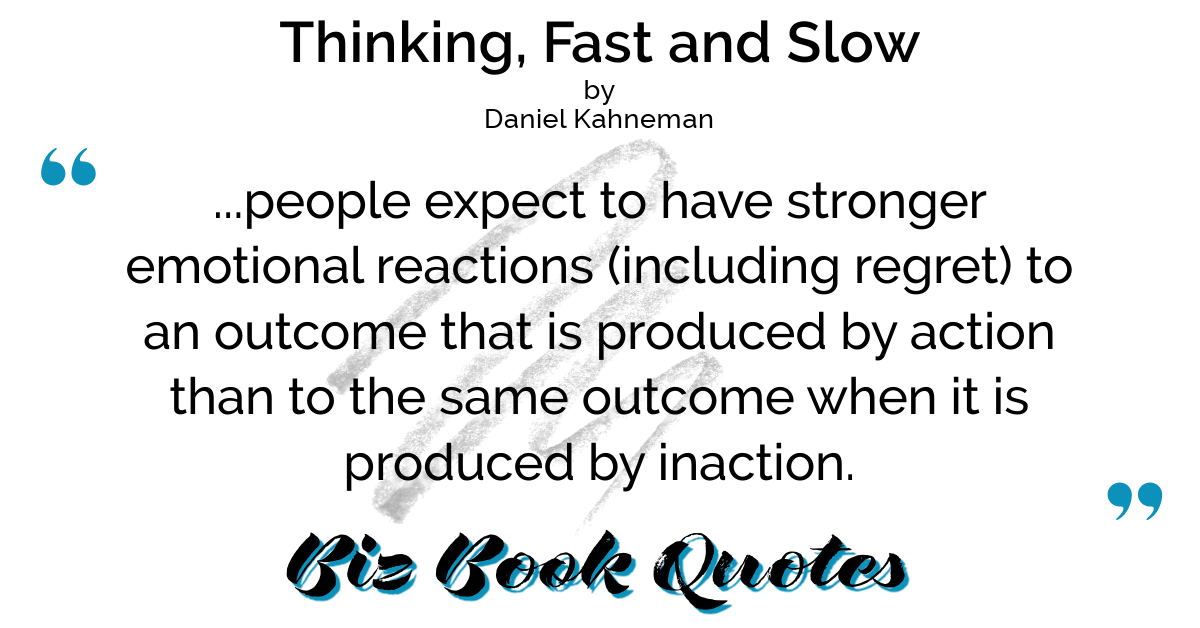
|
Thinking, Fast and Slow:
…people expect to have stronger emotional reactions (including regret) to an outcome that is produced by action than to the same outcome when it is produced by inaction.
|
348 |
|
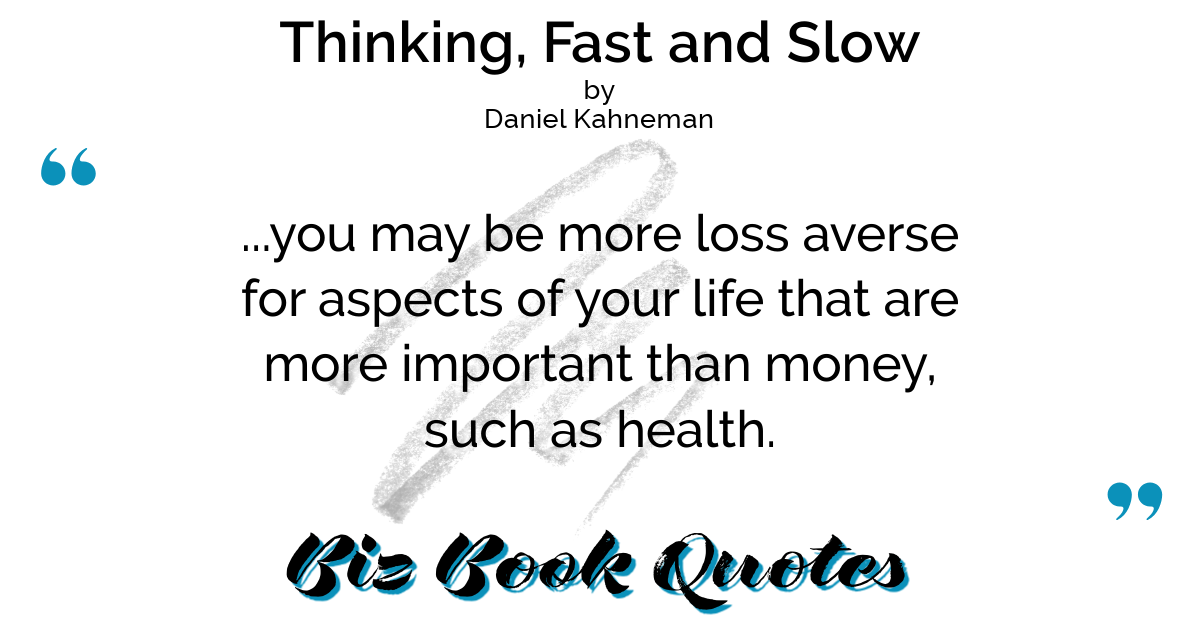
|
Thinking, Fast and Slow:
…you may be more loss averse for aspects of your life that are more important than money, such as health.
|
349 |
|
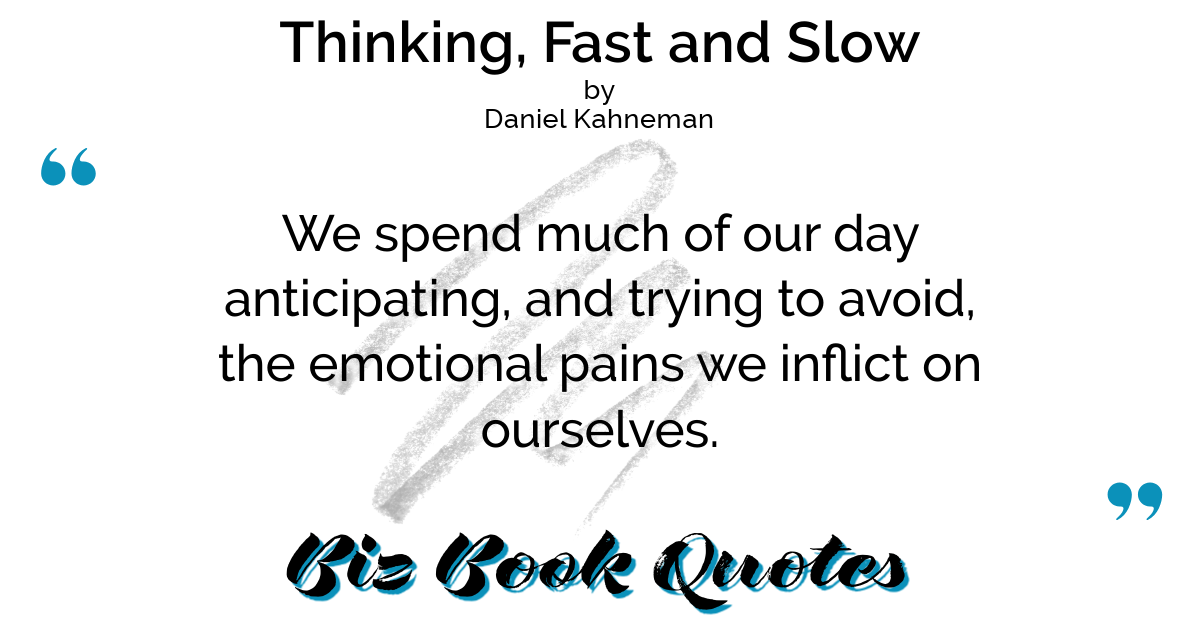
|
Thinking, Fast and Slow:
We spend much of our day anticipating, and trying to avoid, the emotional pains we inflict on ourselves.
|
351 |
|
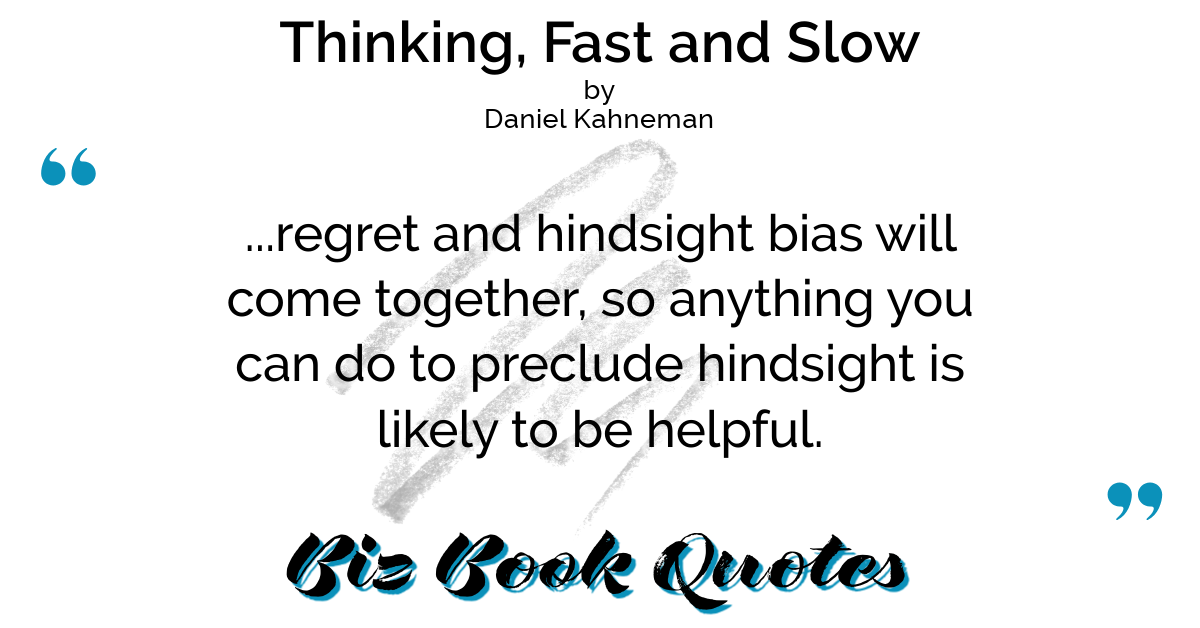
|
Thinking, Fast and Slow:
…regret and hindsight bias will come together, so anything you can do to preclude hindsight is likely to be helpful.
|
352 |
